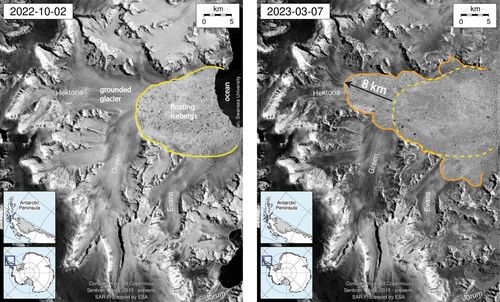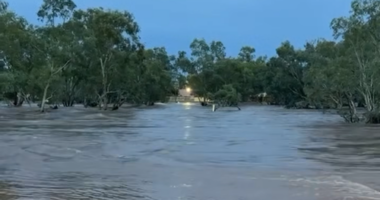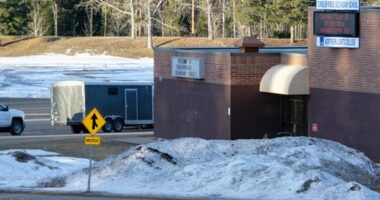Share this @internewscast.com
An Antarctic glacier has recently receded at an unprecedented pace, shrinking by nearly half in just two months. This rapid retreat of the Hektoria Glacier has set a modern record and raises significant concerns about potential impacts on global sea level rise.
Located on the Antarctic Peninsula, the Hektoria Glacier spans an area comparable to the city of Newcastle in New South Wales. This part of Antarctica is known for its rapid warming, as it juts out toward South America like an elongated thumb.
Typically, grounded glaciers like Hektoria, which are anchored to the seabed rather than floating, retreat at a pace of a few hundred meters annually. However, in a startling turn of events, Hektoria pulled back by 8 kilometers between November and December 2022, according to research published in Nature Geoscience.

The phenomenon of ice plain melting has historical precedent. During a warming period that concluded the last Ice Age, around 15,000 to 19,000 years ago, glaciers with ice plains were known to retreat hundreds of meters per day, as per scientific models.
Yet, as researcher Ochwat pointed out, witnessing such rapid change in real-time is unprecedented. The retreat of Hektoria is heavily linked to climate change. The reduction of sea ice adjacent to the glacier, likely driven by warmer ocean temperatures, allowed wave swells to penetrate and fragment the fast ice, leaving the glacier vulnerable to oceanic forces.
Hektoria’s retreat was heavily influenced by climate change, she added. The loss of sea ice in the ocean next to Hektoria, believed to have been driven by ocean warmth, allowed wave swells to reach the fast ice and break it up, leaving the glacier exposed to ocean forces.
As climate change accelerates, “we are likely to see more reductions of sea ice in this region,” said Bethan Davies, a glacial geologist at Newcastle University in the UK who was not involved in the study. This could result in other glaciers losing the sea ice that currently buttresses them, she told CNN.
Hektoria is a relatively small glacier by Antarctic standards, and its partial demise would not cost the planet much in terms of sea level rise, Scambos said.
However, “it’s a smaller cousin to some truly gigantic – I mean size of the island of Britain – glaciers in Antarctica that could conceivably go through the same process, as this whole evolution of the ice sheets on earth evolves with global warming,” he said.
The next stage is to better establish which areas in Antarctica are vulnerable to the same process. If a huge glacier were to disintegrate quickly, “it means that we might have a step change in sea level rise,” Ochwat said.











